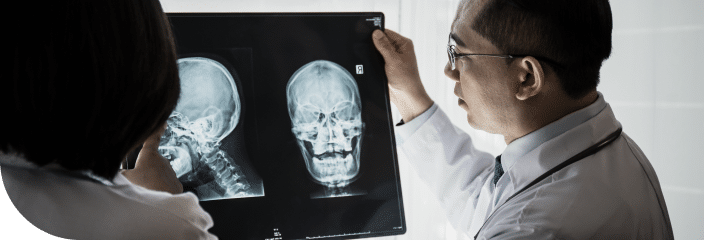Note: This information has been shared by: The Lanier Law Firm
Traumatic Brain Injuries and Mental Health
Traumatic brain injuries, or TBIs, involve changes in how the brain functions as a result of an external force. The University of Florida reports that the primary causes of traumatic brain injuries in the United States are falls, traffic accidents, and violence.
Mental Health Issues Following a TBI
The physical mechanisms of TBI can increase your vulnerability to PTSD. Physical damage to the brain in conjunction with a traumatic experience damages the neural circuits that regulate fear responses. TBI can also lead to cognitive impairment that reduces coping skills. Inflammatory processes following TBI can cause damage to any part of the brain, including the parts that regulate fear and emotion.
The symptoms of TBI can mimic those of PTSD. In fact, they are so similar that health care professionals often have difficulty determining which condition is causing symptoms. A TBI can occur with or without evidence of a physical injury.

TBI symptoms include the following:
- Severe irritability
- Emotional instability
- Apathy
- Aggression
- Paranoia
- Major depressive disorders
- Anxiety disorders
- Panic disorders
- Social phobias
- Increased impulsivity
People with traumatic brain injury have a heightened risk of substance use disorder. Military personnel with TBI are especially susceptible to major depressive disorder, PTSD, and suicide.
People who suffer a severe TBI often experience reduced emotional distress. This could be related to a longer period of unconsciousness during or after the accident or loss of memory of the accident.
Treat your TBI and Mental Health Together
The most effective care for TBI is holistic, person-centered care from a multidisciplinary health care team that focuses on mental health and physical recovery at the same time. Effective TBI therapy focuses on the whole person and promotes education, patient participation, and quality of life. It may include a combination of the following:
- Physical therapy
- Occupational therapy
- Speech therapy
- Psychological counseling
- Vocational counseling
- Cognitive behavioral therapy
Your health care provider may also be able to refer you to a local or online support group for traumatic brain injury survivors who can understand what you are going through and provide insight into coping with any new limitations your TBI is causing. You may feel like isolating yourself when you are coping with a TBI, but this is an important time to be around people who care about you and seek support